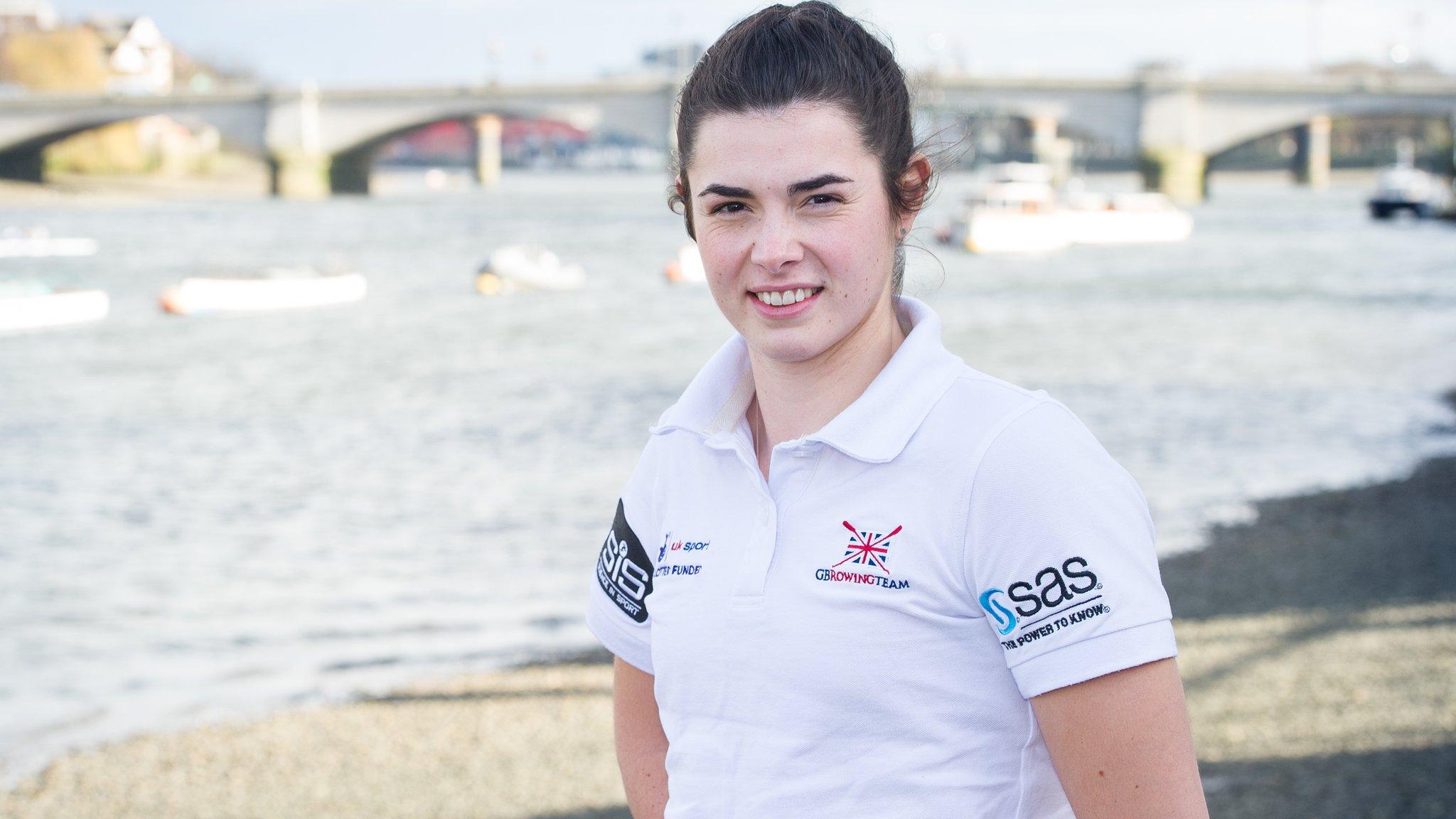Paralympics 2016: Para-canoeist Nick Beighton embraces his new life
- Published
Beighton driven by Paralympic goal
Improvisation is a word Paralympic hopeful Nick Beighton has got used to.
The Improvised Explosive Device he trod on while on patrol in Afghanistan in October 2009 means he had little choice.
Beighton, a former captain in the Royal Engineers, lost both legs above the knee and broke his pelvis. Army medics saved his life, but he spent 20 hours on the operating table at Camp Bastion before being flown back to hospital at Selly Oak in Birmingham.
Ten days in an induced coma followed and Beighton was then in hospital for about three months.
"It's a really frightening place to find yourself in," the 34-year-old told BBC Sport. "It's a real loss of identity. Everything you knew you could do is taken away.
"I was facing a very different life. It was a long journey back trying to work out what I could and couldn't do in life."
He needed "to hold on to something" - and sport helped him keep a grip.
Shrewsbury-based Beighton is now one of Britain's top Para-canoeists and is part of the full-time Para-canoe training squad at the National Watersports Centre on the outskirts of Nottingham.
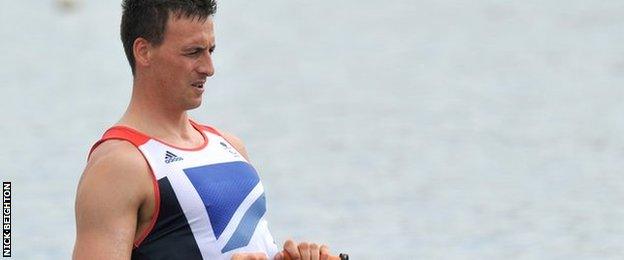
Beighton missed out on a medal by one place at the London 2012 Paralympics
If he seals selection at the trials in Nottingham on 4 June, it will be his second Paralympics, having competed as a rower at London 2012.
His training group are on the water twice a day, up to six times a week, with gym work in between. They are determined to make a mark as their sport makes its Paralympic debut in Rio this summer.
"It's so exciting," Beighton said. "It's our first opportunity as a sport to go and showcase it to the world on the biggest stage.
"That chance to go and win the first-ever Paralympic medal in kayaking is a real draw. It's very exciting."
The teenage Beighton would have had little trouble picturing himself on the podium at Rio with a medal dangling from his neck.
A sporty kid, he was in all the teams and always looking for adventure. He also wanted to be in the army.
At the age of 13 he joined the cadets and at 18 he was in Sheffield University's Officer Training Corps. Sandhurst beckoned.
But any sort of sporting glory was a long way from his mind as he lay horrifically injured and still conscious having stood on a bomb just over six and half years ago.
Battle Back Beighton
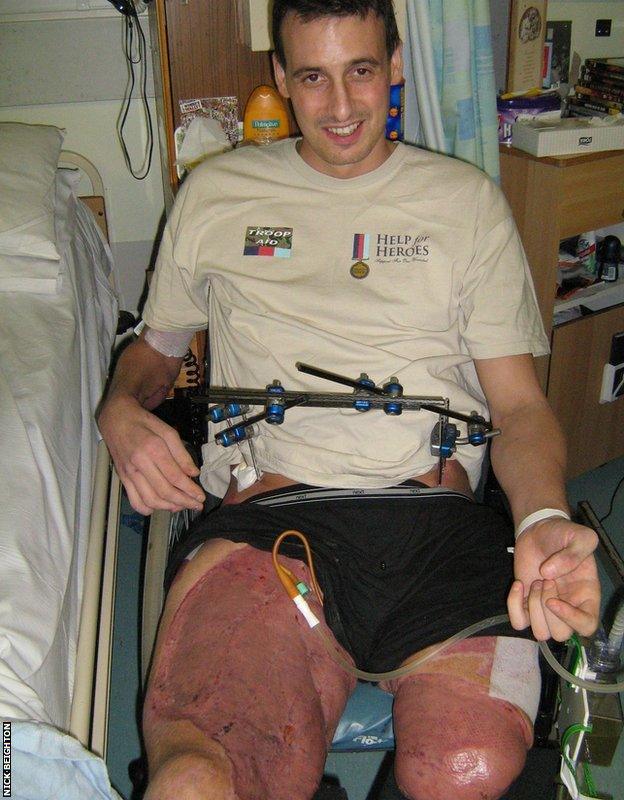
Beighton spent three months in hospital in Selly Oak, Birmingham recovering from his injuries
His army life took him all over the world. He trained to be an instructor in mountaineering and rock climbing and he was a decent skier.
This active lifestyle gave him focus and motivation while at the Defence Medical Rehabilitation Centre near Epsom in Surrey.
The Ministry of Defence has a scheme called Battle Back,, external which gives the seriously injured access to sport and adventure training. Beighton started water skiing, then rock climbing, skiing and rowing.
"The military have developed a really strong structure around that," he explained. "They appreciate the strength of sport and adventurous training as a rehab tool to get people out of themselves and getting people active again."
It is working. He rediscovered his identity, he regained his confidence. And what started out as rehabilitation was now becoming serious.
"I wanted to see how far I could take it," Beighton said. "I had this amazing opportunity with London 2012 coming up. I really wanted to push for it."
Around 30,000 supporters cheered him on the Eton Downey course with his rowing partner Samantha Scothern during his Paralympic debut in August 2012 - just two years after he took up the sport.
They finished a heartbreaking fourth, a fraction of a second too slow for a medal. It's hard to take.
Reversal of fortune
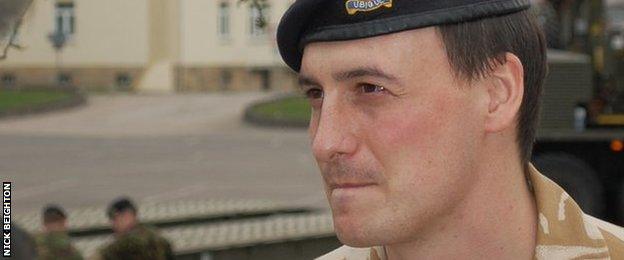
Beighton served as a captain in the Royal Engineers for nine years
After London, Beighton felt it was time for a new sport - so he switched to Para-canoeing.
This time of course, it is going forwards, not backwards. And it is very different.
He is pushing his body in new ways. Rowing is about endurance. Para-canoe is 40 seconds of power over 200m. And it has never been seen at a Paralympics before.
"I found it almost by chance," he said. "I was looking for something different - a new sport and a new challenge.
"I'd done a little bit of sea kayaking in my time off after London and really got the bug for it."
This time he aims to enjoy the experience, something he regrets not really doing in London with the pressure of a home Games.
This time, he wants to take in all that it means to be a Paralympian. Of course, he wants a medal too, but he is determined to enjoy what sport has given him.
"It provides me a focus in life," he said. "It gives me the structure I need to have purpose. That's one of the things you lose when you are injured. That sense of purpose and direction in life.
"You feel cut adrift from it. To enforce it by setting a routine helps me in my mindset and my mental state and in my enjoyment of life."
- Published5 April 2019
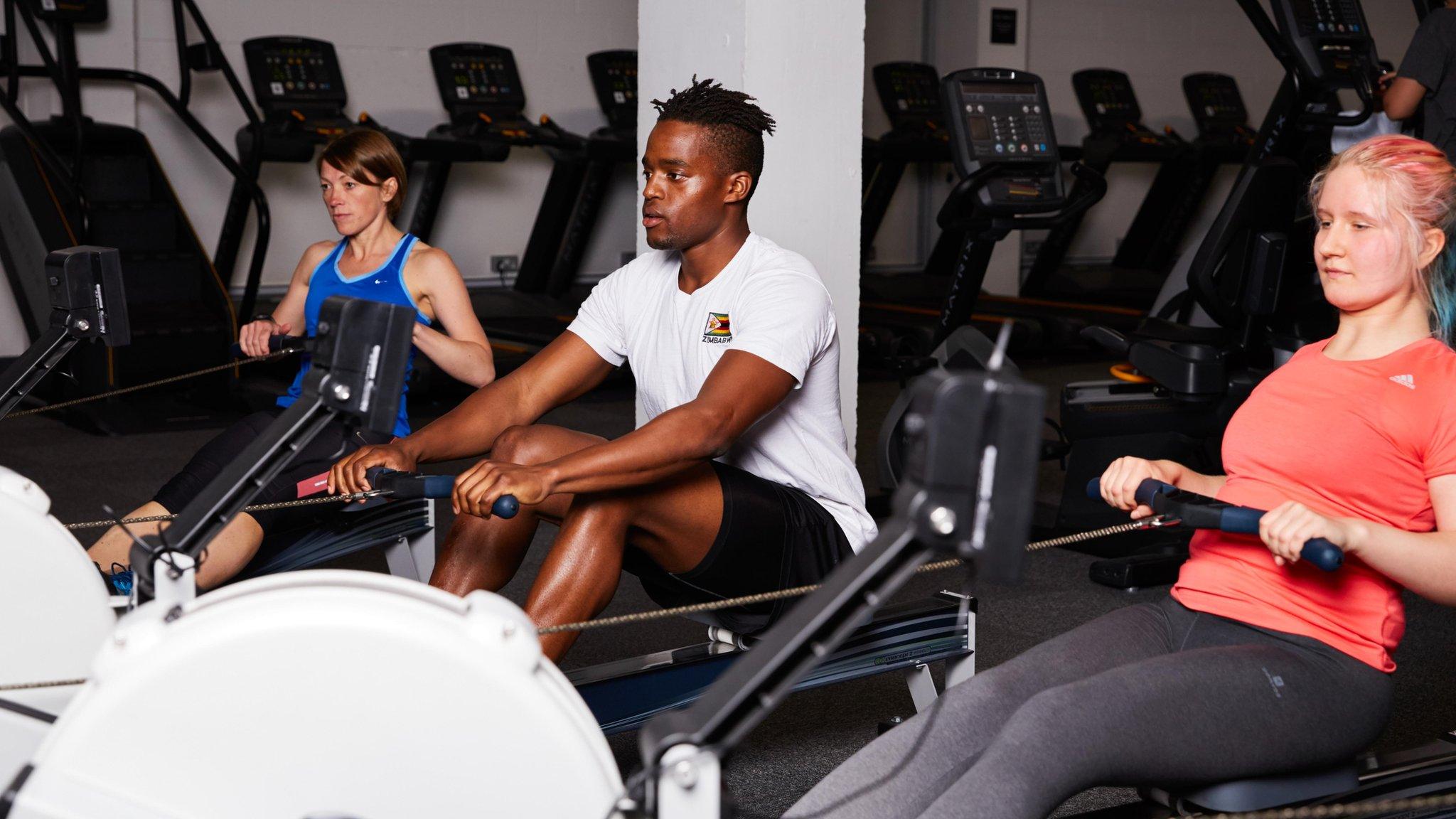
- Published22 May 2016
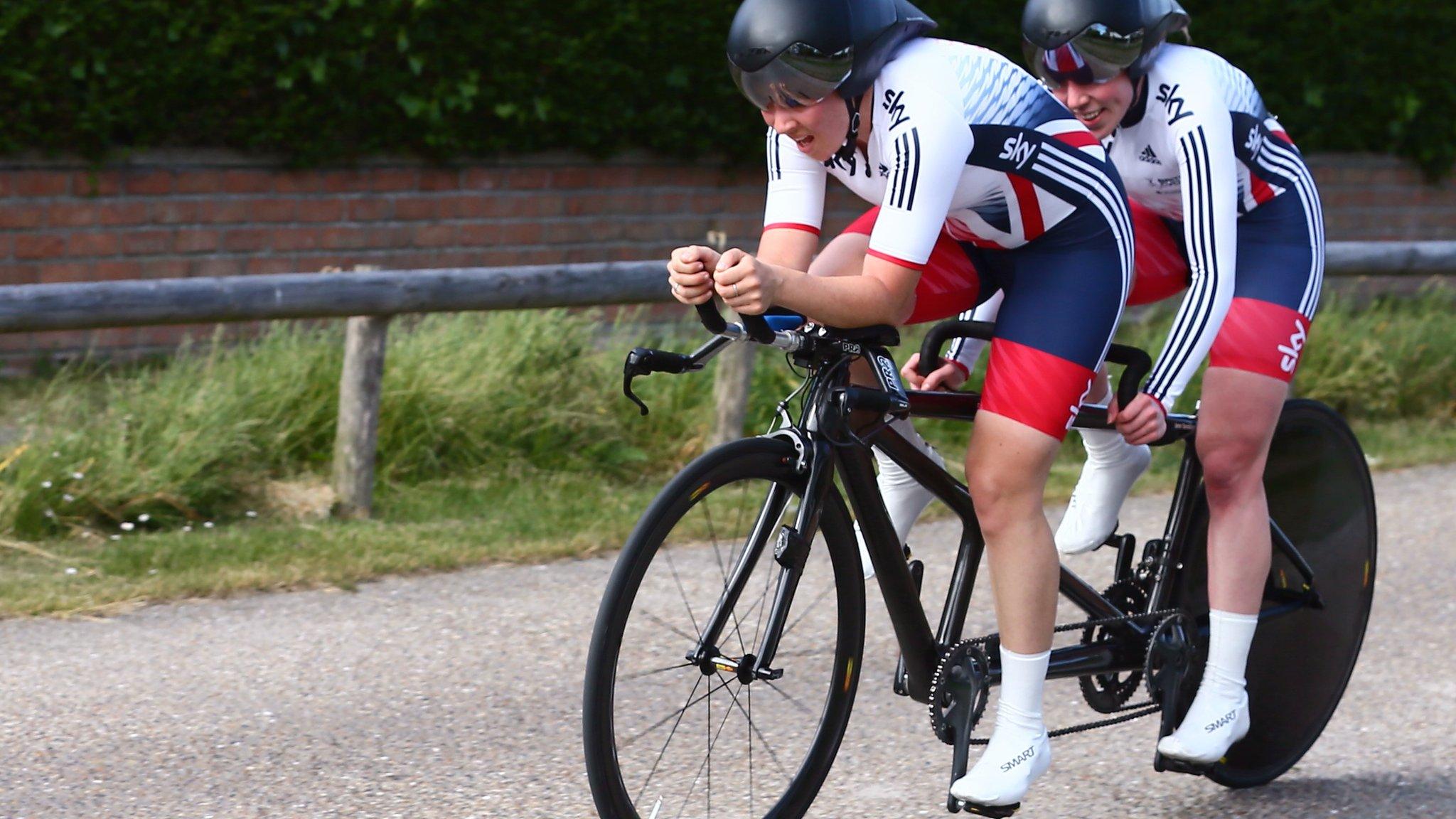
- Published19 May 2016
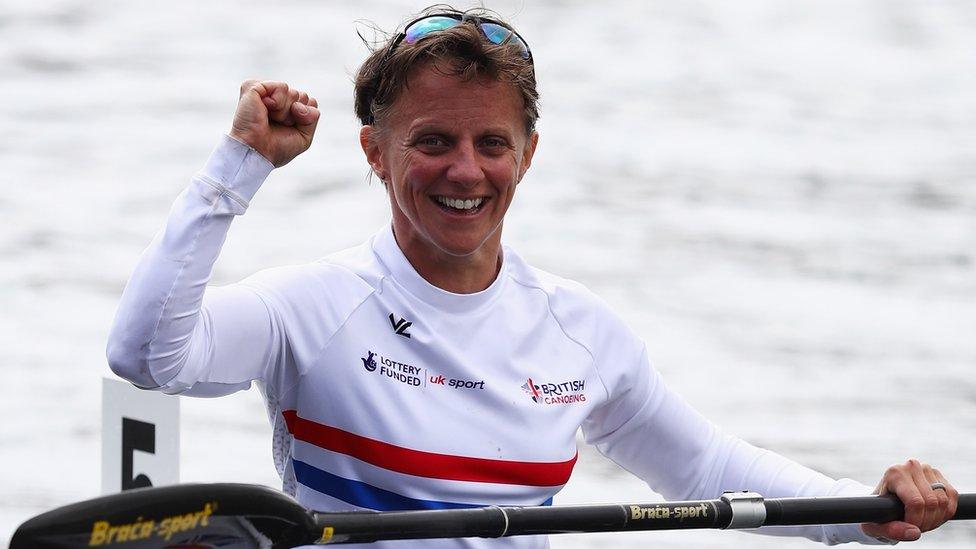
- Published17 May 2016
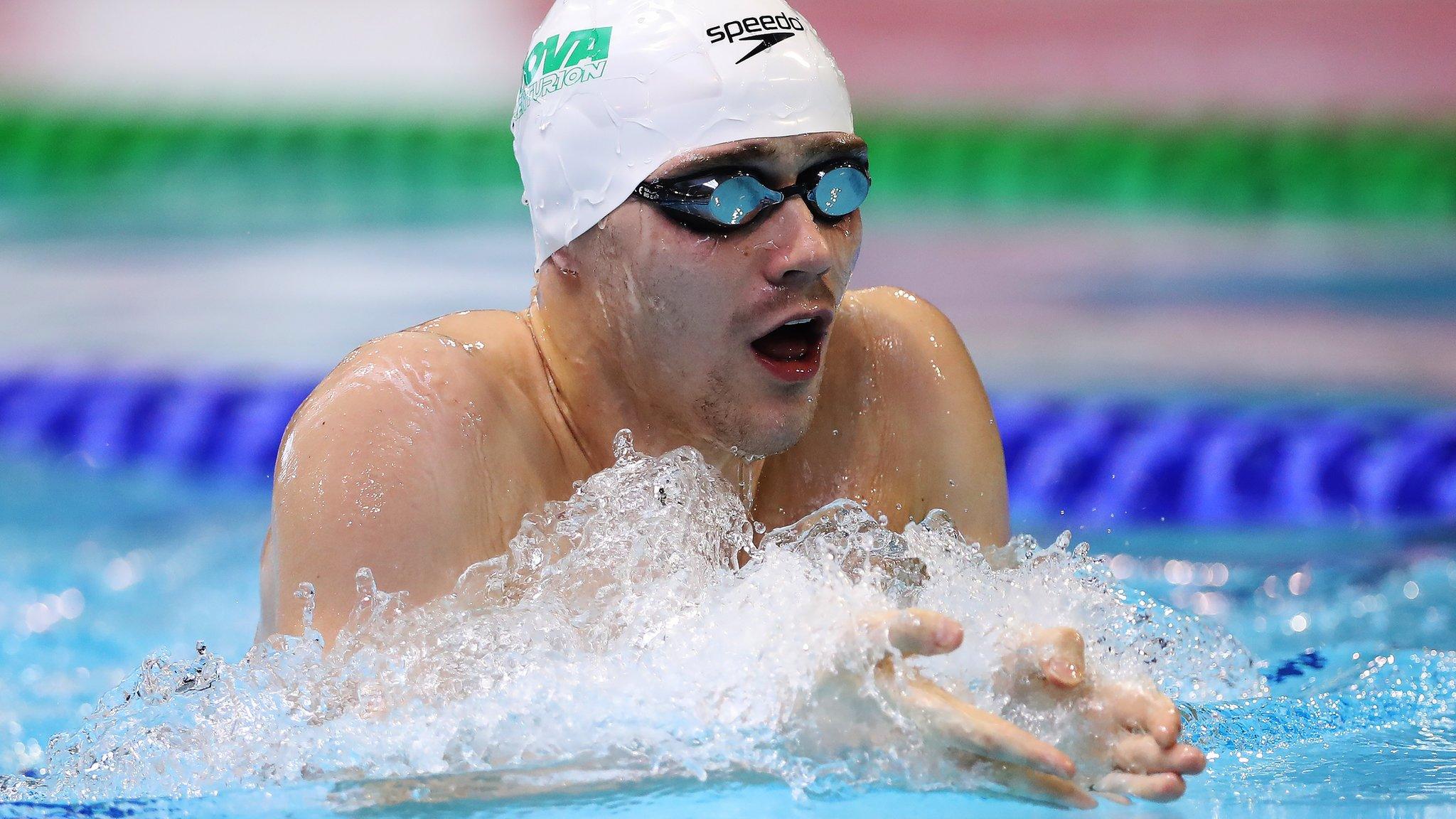
- Published24 May 2016
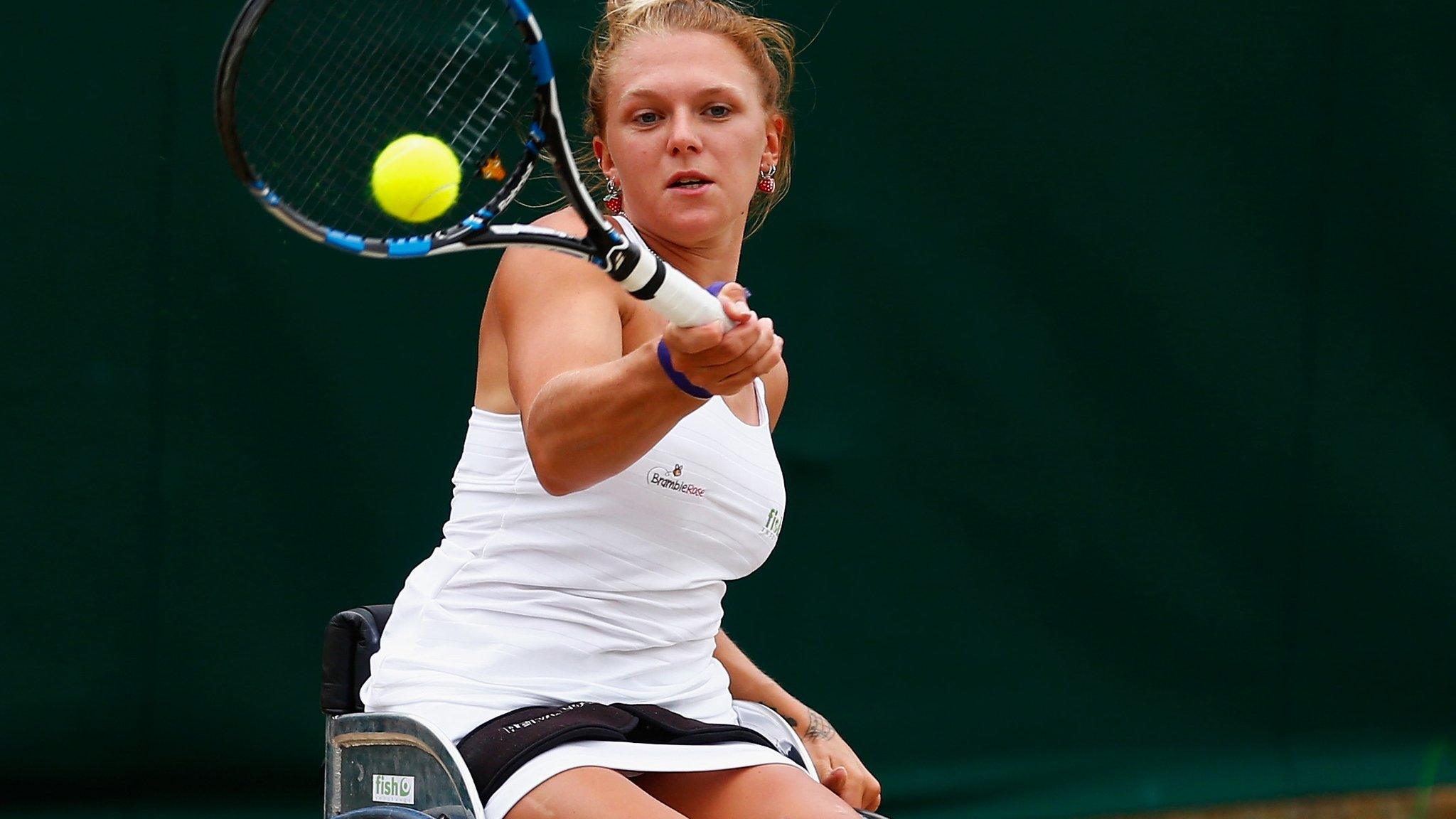
- Published1 April 2016
